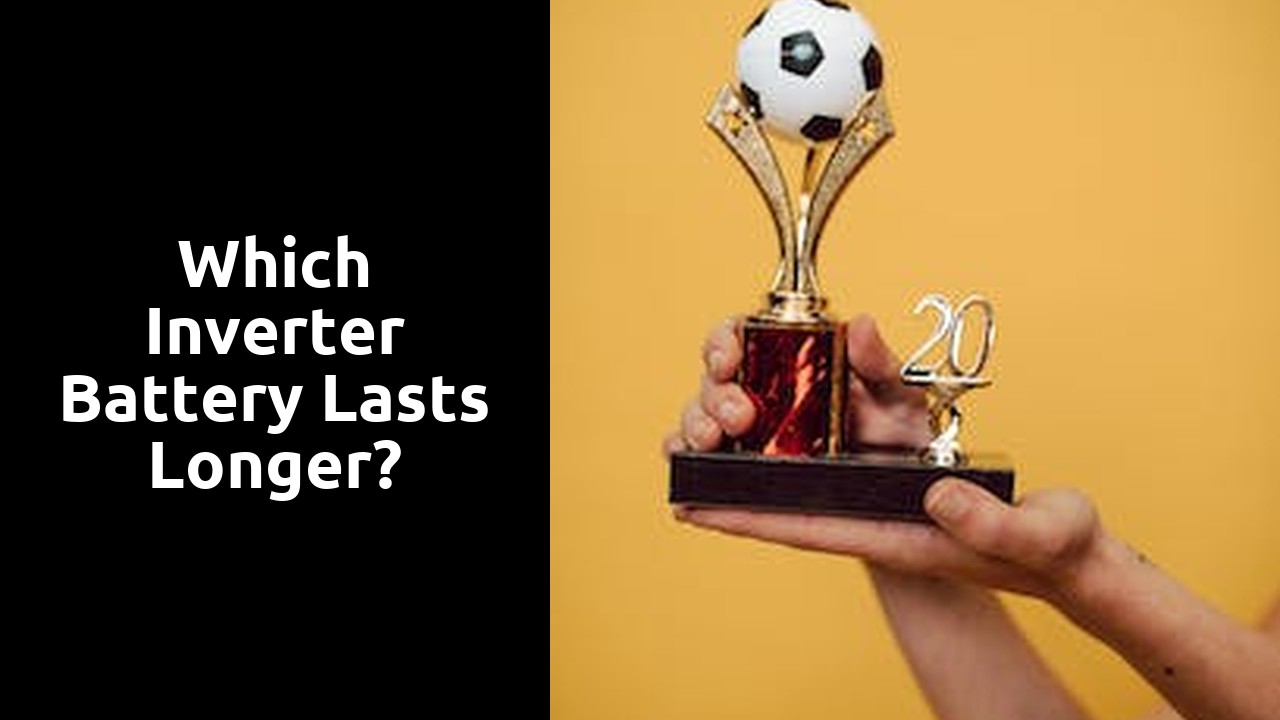Which inverter battery lasts longer?

There is no definitive answer to this question as it depends on a variety of factors, including the type of inverter battery, how often it is used, and how it is treated. However, some inverter batteries may last longer than others.
Definition of an inverter battery
An inverter battery is a type of battery that is used to power devices that require an alternating current, such as a motor vehicle. Inverter batteries are typically more expensive than standard batteries, but they last longer because they can handle higher voltages. Which inverter battery lasts the longest is not always clear, but generally speaking, the battery that is designed for a specific application will last longer than a generic battery.
Overview of the two main types of inverter batteries
Inverter batteries come in two main types: lead acid and nickel-cadmium. Lead acid batteries are the older type and typically last longer than nickel-cadmium batteries. However, newer nickel-cadmium batteries may last even longer. It is important to know which type of inverter battery is best for your needs.
Lead Acid Batteries
Lead acid batteries have a longer lifespan than other types of batteries, but which inverter battery lasts longer? It depends on the type of inverter battery, but generally speaking, lead acid batteries will last longer than nickel-cadmium or lithium ion batteries.
Advantages
There are many advantages to using an inverter battery over a standard battery. One advantage is that inverter batteries last longer. This is because inverter batteries are designed to be discharged and recharged many times, which helps them to hold their charge longer.
Disadvantages
There are a few disadvantages to using an inverter battery over a traditional battery. One disadvantage is that inverter batteries tend to last shorter than traditional batteries. Another disadvantage is that inverter batteries are more expensive than traditional batteries. However, which inverter battery lasts longer is a matter of personal preference.
Lithium-Ion Batteries
There is no definitive answer to which inverter battery lasts longer, as it depends on a variety of factors including usage, type of inverter battery, and storage conditions. However, a lithium-ion battery typically lasts longer than a lead-acid battery, and a hybrid battery may have the best balance of longevity and performance.
Advantages
There are a few advantages to using an inverter battery over a standard battery. One advantage is that inverter batteries last longer than standard batteries. Another advantage is that inverter batteries are usually lighter and easier to transport.
Disadvantages
There are a few disadvantages to using an inverter battery over a traditional battery. One disadvantage is that inverter batteries tend to last shorter than traditional batteries. Another disadvantage is that inverter batteries are more expensive than traditional batteries.
Comparison
There are a few factors to consider when choosing an inverter battery. One is the battery's discharge rate, which determines how long it will last. Another is the type of inverter battery. Some inverter batteries have a longer lifespan than others.
Cost
There are a few factors to consider when choosing an inverter battery. The cost of the battery, the type of inverter battery, and the lifespan of the battery all play a role in determining which inverter battery will last the longest. The most expensive inverter batteries are typically the most durable. However, there are also inverter batteries that are less expensive but have shorter lifespans. It is important to choose an inverter battery that will fit your needs and budget.
Lifespan
There is no definitive answer to which inverter battery lasts longer, as it depends on a variety of factors including usage, type of inverter battery, and storage conditions. However, some inverter batteries that are known for their longevity include the Enphase Energy Solutions ES.2 and the Schneider Electric SE3.5-KW inverters.
Maintenance
There is no definitive answer to this question as it depends on a variety of factors, including the type of inverter battery, how often it is used, and how it is treated. However, some inverter batteries may last longer than others if they are treated properly.
There is no definitive answer to which inverter battery lasts longer, as it depends on a variety of factors including usage, type of inverter, and battery chemistry. However, some inverter batteries that are known to last longer include the AGM and gel-cell types.
Summary of the advantages and disadvantages of each type of battery
There are a few different types of batteries available on the market, each with its own set of advantages and disadvantages. Lead-acid batteries are the most common type, and they offer a number of advantages, such as being cheap and easy to replace. However, they also have a number of disadvantages, such as being heavy and having a short lifespan. Inverter batteries are a newer type of battery, and they offer a number of advantages over lead-acid batteries. They are lighter, have a longer lifespan, and are more efficient. However, they also have a few disadvantages, such as being more expensive and requiring a special inverter to work.
Recommendation of which type of battery is best for different applications
There are many types of batteries available on the market, and it can be difficult to decide which one is the best for a specific application. Some inverter batteries last longer than others, but it is important to choose the right one for the task at hand.
Final thoughts on which type of battery lasts longer
There is no definitive answer when it comes to which type of battery lasts longer, as it depends on a variety of factors including usage, type of inverter, and climate. However, a lead-acid battery is typically considered to last longer than a lithium-ion battery, and an inverter battery typically lasts longer than a solar battery.
Related Links
Which luminous battery is best for inverter?How good is luminous inverter battery?